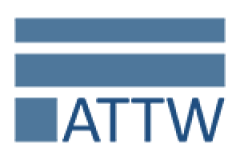ATTW 2019 Conference Call for Proposals
Accountability in Technical Communication
Pittsburgh, PA, March 12-13, 2019
Overview
Proposal submission deadline: November. 4, 2018
The Association of Teachers of Technical Writing (ATTW) invites proposals for papers, posters, and workshops to be given at its 22nd annual conference. The ATTW conference will be held in Pittsburgh, PA, on March 12-13, 2019, immediately preceding the Conference on College Composition and Communication. The ATTW conference includes a plenary, concurrent sessions, book exhibits, an editor’s roundtable, and opportunities for exchanging ideas and networking.
Theme
Accountability as a theme emerges from the storied past of our conference site—Pittsburgh, a place where for millennia Hopewell peoples participated in an exchange network; where the Iroquois Confederacy shared the land base and its resources among many tribes; where the Lenape, Shawnee, and Wyandot were displaced by settler colonialism and French and British battles for the land. The early steamboats set sail here, and cotton and wool mills soon appeared. This is the heart of the “Whisky Rebellion” and the iron and steel industrial boom. It was home to Andrew Carnegie, a Scottish
immigrant with a philosophy of accountability that influenced his philanthropic creation of Carnegie Mellon University right here in Pittsburgh and Carnegie libraries around the country. This is, in short, a place that bears testimonies of many shifting cultural powers, landscapes, resource management, labor forces, workers, and workplaces. With this storied past of our conference locale and its changing cultural brokers and stakeholders, asking questions about accountability seems apt for our 2019 ATTW gathering.
Accountability, both as a concept and a practice, is built into the work of technical communication—as it should be in any rhetorical inquiry and communicative act. As teachers, we are accountable to a range of students: majors, non-majors, students in schools large and small. As practitioners, we are accountable to end users, communities, and clients. As scholars, we are accountable to colleagues, collaborators, and discourse and research communities. As program administrators, we are accountable to faculty, staff, and university administrators. Collectively, our field has attended in varying ways to issues of accountability with scholars such as Miller (1979), Katz (1992), Savage (1996), Schuster Lay (1997), Johnson-Eilola (1996), and many others asking whom we are accountable to, why, and how. Such questions appear in many veins of our work, in program development, pedagogy, assessment, intercultural communication, new media, risk communication, ethics. The list goes on.
We recognize that the boundaries of these categories and accountabilities remain fluid, with varying influences continually running into each other and in and out of focus. Some of these accountabilities are upheld based on pedagogies and best practices, emerging research findings, and basic human rights and equal access. However, some taken-for-granted accountabilities may need to be challenged or complicated, for example, accountabilities that hinder the sustainability of our profession and inclusivity and social justice in our field and beyond.
Questions to consider
At 2019 ATTW, we encourage you to discuss the concept of accountability in technical communication. We welcome a range of approaches that discuss your work as an educator, practitioner, scholar, administrator, civic advocate, and more. The discussions include but are not limited to the following:
How do you approach the concept of accountability in your teaching, research, service, and/or
program administration? Whom do you try to be accountable for, why, and how in these various areas of your work?
What pedagogical approaches induce and critically challenge the concept of accountability?
How does your work in assessment address issues of accountability within and external to your institutions and/or frames of reference?
What theoretical frameworks induce and critically challenge the concept of accountability?
What service models induce and critically challenge the concept of accountability?
What program models induce and critically challenge the concept of accountability?
What taken-for-granted accountabilities do you try to change or challenge, why, and how?
How has our current cultural context affected the way we conceptualize and employ notions of accountability? What has such context called to the forefront and what has it marginalized? Why and to what end/s?
Proposal format
Proposal submissions must specify one of the following formats:
Regular Session—Individual proposals: Individuals may submit proposals for 15-minute talks on
panels created by the conference organizers. These proposals should be no more than 300 words.
Regular Session—Panel proposals: Groups may submit proposals for 75-minute panel presentations. These proposals should be no more than 200 words per presentation plus a 150-word contextualization/justification of the panel (800 words max).
Poster Presentations: Posters will be on display throughout the day with special times dedicated for conversations about this work. Proposals for poster presentations should be no more than 300
words.
Workshop Sessions: The conference will include two 90-minute workshops concurrent with the
regular sessions or discussion groups. Workshops that invite and support newcomers in the field are especially welcome. Workshop proposals should be no more than 800 words.
Proposals should not include any identifying information, including the names and institutions of presenters.
All rooms will have a projector. Please bring your own laptop and Mac connectors.
Submission
Please submit proposals here via Submittable. Submission deadline is November 4, 2018.
Intended audiences
All teachers, researchers, and students interested in technical communication are welcome.
Contact
For any additional information concerning this CFP and the conference, please contact the conference co-chairs, Han Yu (hyu1@ksu.edu) or Marie Moeller (mmoeller@uwlax.edu).
